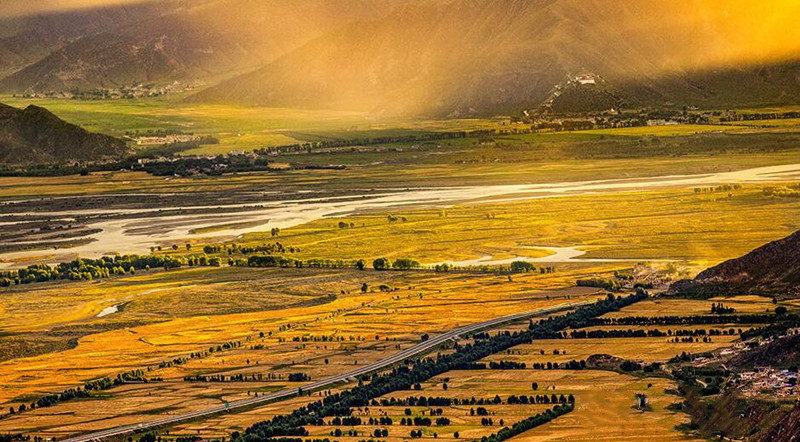
Changes in Tibet’s first village of carrying out democratic reform
The news was updated on August 28, 2019.

In 1959, Sonam Dorje was 13 years old. He lived on the Khesum Estate, and he and his parents were all serfs.
Recalling his teenage years, Sonam Dorje said that he took the animals out to graze every day before dawn and stayed out until it was dark. The money he was given by the serf owner could only be used to get a half jin (1 jin = 0.5 kilograms) of tsampa, which was not enough to feed the family. At that time, the price of a serf was 18 jin of grain; there was no difference between serfs and livestock.
“In December 1959, the People’s Liberation Army (PLA) came to my village,” Sonam Dorje said. “Later, our family finally had the first cow that belonged to us.”
The Khesum Estate was one of the six major estates in Lhoka of the serf owner Surkhang Wangchen Gelek in old Tibet.
After democratic reforms were implemented in 1959, the Khesum Estate became the first village in Tibet to carry out democratic reforms.
In 2002, the Khesum Village Committee was renamed the Kelsang Residents Committee and subordinated to Changzhu Township in Nedong County, Lhoka City.
Speaking of his family, Sonam Dorje points happily to photos on the wall. “This is my granddaughter. This is a photo of my daughter going to Beijing. This is a photo of my wife and me and our relatives at Tiananmen Square. We have traveled to several places like Beijing and Shanghai.”
Dawa is one of the first people to have prospered in the community.
Dawa bought a walking tractor by borrowing 3,000 yuan (419 US dollars) in 1986. During the farming slack season, he made money by transporting building materials and repaid all his loans within two years.
Dawa said that these years he has engaged in freight transport, running a restaurant, and buying a taxi to transport passengers. His income has gradually increased and his life gets better and better.
In 2014, Dawa built a two-story reinforced concrete house, and now he helps the community promote culture development.
Speaking of the current Khesum Community, Dekyi Bazhen, who was born in the 1990s, said that compared with her childhood, the changes that have occurred in Khesum Community are great.
She studied in Lhoka for high school and studied in a vocational school in Lhasa. She returned to her hometown after graduating in 2015.
“Our daily life is also very rich. We can play billiards, do yoga, play basketball, and the community also has treadmills.”
Source from Tibet.cn.













